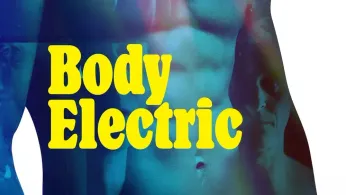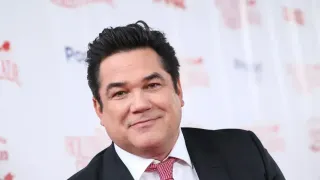
3 hours ago
New Doc "Body Electric" Unpacks the Body Dysmorphia Crisis in the Queer Community
READ TIME: 3 MIN.
The release of "Body Electric," now streaming on Amazon Prime Video, marks a significant cultural moment for LGBTQ+ visibility and health. Directed by acclaimed filmmaker and Tony Award-winning producer Nick Demos, the documentary confronts the often-unspoken epidemic of body dysmorphia and related body image issues that disproportionately affect LGBTQ+ individuals, particularly gay men and transgender people .
Body dysmorphic disorder (BDD) is a mental health condition characterized by obsessive focus on perceived flaws in appearance, often leading to severe emotional distress and risky behaviors. While BDD is not limited to any single group, research and lived experiences indicate that queer people experience it at significantly higher rates than the general population . Director Nick Demos, who also shares his own struggles with BDD in the film, frames the condition as "a gay crisis," contending that the combination of societal, cultural, and media-driven pressures creates a unique and pressing challenge for LGBTQ+ communities .
"Body Electric" is distinguished by its deeply personal approach, featuring interviews with beloved figures including Emmy Award-winner Leslie Jordan (in one of his final film appearances), comedian Bruce Vilanch, playwright Del Shores, comedian Judy Gold, trans activist Rajee Narinesingh, and actress/writer Shakina .
The documentary brings together these voices in an open dialogue about the realities of body image in the LGBTQ+ world. For many, the pressure to conform to narrowly defined ideals of beauty—often muscular, slim, and youthful—can lead to a lifetime of insecurity, self-criticism, and, in severe cases, dangerous behaviors such as unregulated use of steroids, black market cosmetic procedures, and disordered eating .
Demos’s direction is both compassionate and unflinching, allowing interviewees to share their experiences in their own words, which helps destigmatize these struggles and foster a sense of solidarity among viewers .
"Body Electric" goes beyond individual stories to investigate the systemic factors contributing to body image distress in LGBTQ+ communities. The documentary directly addresses the impact of the AIDS crisis—a historical trauma that continues to shape self-image and community norms, particularly for older gay men. The loss of a generation, combined with stigmatization and the persistent myth that beauty and desirability are essential for acceptance, leaves scars that are still felt today .
The film also examines the role of media, both traditional and social, in perpetuating unrealistic standards. For example, the explosion of fitness culture and filtered perfection on platforms like Instagram can heighten anxiety and reinforce harmful ideals, particularly among younger LGBTQ+ people .
Transgender individuals, in particular, face unique challenges. While striving to affirm gender identity through appearance, they may confront additional scrutiny and pressure to look a certain way, both within and outside the LGBTQ+ community. The documentary gives voice to these intersecting experiences, ensuring a broad and inclusive perspective .
Despite the sobering subject matter, "Body Electric" ultimately offers a message of hope. The film highlights grassroots efforts and community-based organizations working to provide support, raise awareness, and challenge stigma around body image and mental health in LGBTQ+ spaces. Peer support groups, mental health resources tailored for queer and transgender people, and campaigns promoting body diversity are shown as essential tools in the fight for acceptance and healing .
Demos and his collaborators stress that visibility and conversation are key to change. By centering LGBTQ+ voices and stories, "Body Electric" not only educates the broader public but also creates a sense of belonging for those struggling in silence. “This has been a labor of love for everyone involved,” Demos stated, “We’re proud to share this story with audiences around the world and continue the conversation around visibility, acceptance, and healing” .
The film’s festival success and critical praise further underscore the urgent need for these conversations. As "Body Electric" reaches a global audience, it stands as both a call to action and a celebration of the LGBTQ+ community’s resilience, inviting viewers to envision a world where every body is honored and every story is heard .






